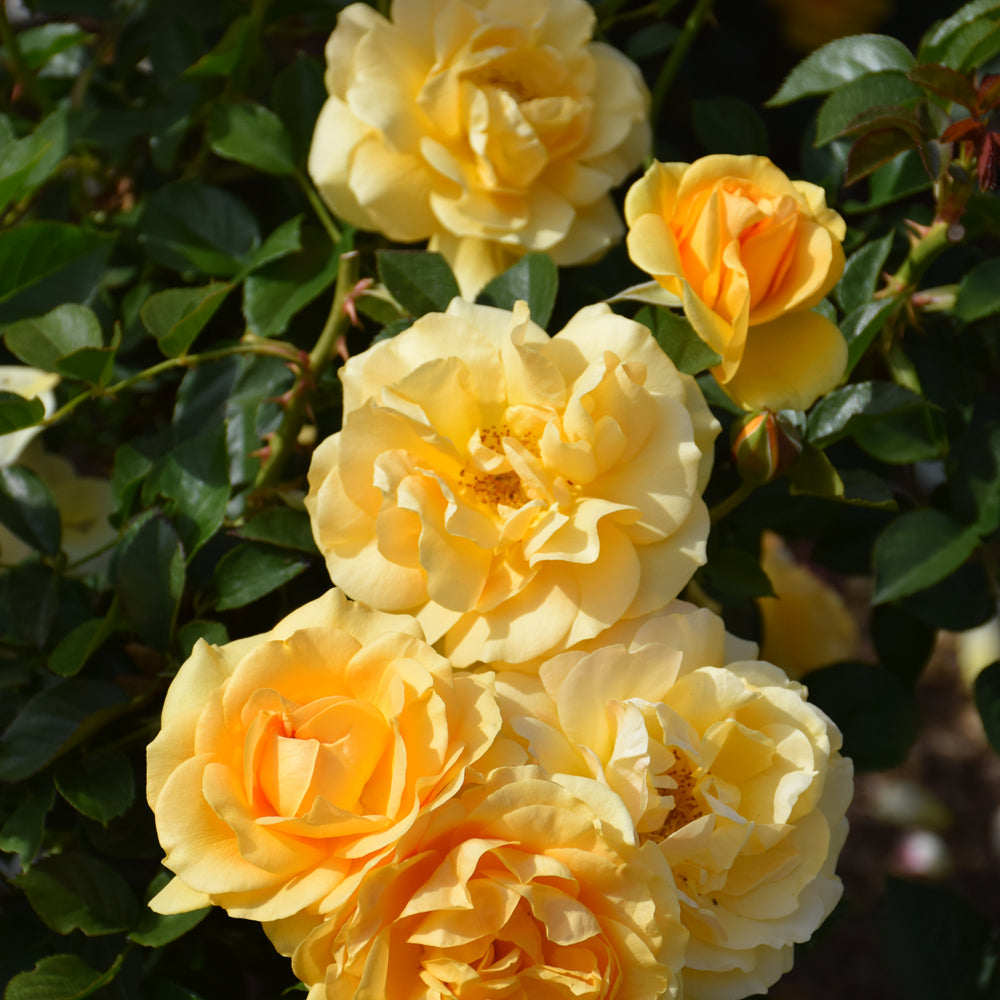Julia Child® Rose
Julia Child® Rose
|
|
Browse More Plants |
Shipping for other products is calculated at checkout.
Couldn't load pickup availability
Botanic Name: Rosa 'WEKvosstuno'
Description: A lovely and even buttery gold coloring, and the licorice candy fragrance compliment the perfectly rounded habit, superior glossy leaves, and great disease resistance of this exceptional variety
Landscaping Attributes
Landscaping Attributes
Julia Child® Rose is a multi-stemmed deciduous shrub with an upright spreading habit of growth. Its average texture blends into the landscape, but can be balanced by one or two finer or coarser trees or shrubs for an effective composition.
This shrub will require occasional maintenance and upkeep, and is best pruned in late winter once the threat of extreme cold has passed. Gardeners should be aware of the following characteristic(s) that may warrant special consideration;
Spiny
Julia Child® Rose is recommended for the following landscape applications;
Mass Planting, Hedges/Screening, General Garden Use
Ornamental Features
Ornamental Features
Julia Child® Rose is bathed in stunning fragrant double buttery yellow flowers at the ends of the branches from late spring to early fall. The flowers are excellent for cutting. It has dark green deciduous foliage. The glossy oval compound leaves do not develop any appreciable fall color. The fruits are showy red hips displayed in late fall.
Planting & Growing Tips
Planting & Growing Tips
Julia Child® Rose will grow to be about 3 feet tall at maturity, with a spread of 3 feet. It tends to fill out right to the ground and therefore doesn't necessarily require facer plants in front. It grows at a fast rate, and under ideal conditions can be expected to live for approximately 20 years.
This shrub should only be grown in full sunlight. It does best in average to evenly moist conditions, but will not tolerate standing water. It is not particular as to soil type or pH. It is somewhat tolerant of urban pollution. This particular variety is an interspecific hybrid.
More Info...
More Info...
Hardiness Zone: 5
Sunlight: Full Sun
Height: 3 feet
Spread: 3 feet
Photo Credits: NetPS Plant Finder
Share






